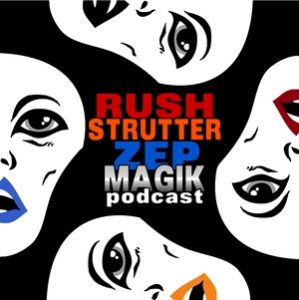“ The Orange File” is an irregular series of blog posts through which I will chronicle some of my experiences dealing with a potentially serious kidney issue.
The Orange File” is an irregular series of blog posts through which I will chronicle some of my experiences dealing with a potentially serious kidney issue.
The doctors moved quickly to schedule my right radical nephrectomy, scheduling the procedure somewhere around two weeks after the initial discovery of my mass. I was, of course, grateful for the sense of urgency, but rattled by it, as well. Once again, the pacing of everything drove it home to me that this was serious business, indeed. Moreover, despite some indications that things were relatively contained and treatable, I repeatedly found myself conjuring up the worst possible, and often the least plausible, of outcomes.
A couple of points before I go much further with this anecdote: First of all, I find it hard to believe most people who boast that they’re not afraid of dying. Sure, there are people who are ready to go by the end, there are definitely people who want out, and there are unique sorts of people who can face danger and uncertainty with admirable decorum. But the folks who put the “NO FEAR” stickers on their trucks, pose dramatically with their gun collections amidst banners that say “ΜΟΛΩΝ ΛΑΒΕ” or “WE DON’T CALL 911,” and heck, even Stone Cold Steve Austin’s “F💀CK FEAR, DRINK BEER” motto – I just don’t buy that most of these folks wouldn’t be a little rocked by sudden news of a potentially life-threatening condition. Then again, I don’t feel like there’s anything wrong with me being upset about my own situation, either.
For my part, my fear in these earliest days of this whole misadventure was more centered upon what would happen to my family without me; how would they get by and who would they turn to if I’m not around anymore? Of course, if given the opportunity to run the full circuit of an anxiety attack, my brain would eventually get back to the question of what will happen to me when the spark of life eventually fades, as well as whether or not I have lived a good enough life to merit a good enough afterlife, provided that’s how it works. But the way this situation has moved my internal locus of control a bit to the outside is somewhat embarrassing to me, and there have been a few times that I’ve found myself falling back into metaphysical explanations and consequences, particularly when I’m stressed or panicky.
With all of those prefatory remarks in mind, I had a dandy of a freak out a few evenings prior to my nephrectomy, when I accompanied my wife (T) and our son (D) to Kohl’s to get my son some shoes. I wasn’t feeling too much like going out and about, but I also felt the pressing need to “put one foot in front of the others,” as so many people have suggested to me, so we went out together. I was intrigued by the sight of some menacing rubber wolves frolicking without legs among small fields of pinwheels near both store entrances, a tactic that seemed to be aimed at keeping Canadian geese (and more importantly, their goose poop) away from the front of the store. It was an odd sight, and I stopped to take pictures for posterity.
I think we still went in the store together, but I said I wanted to look through the men’s department and I would catch up. I’m not sure why I did that, though, as I had no intention of buying anything, especially with major surgery being a few days away. Just a few moments away from my family seemed to bring on a nagging feeling, not quite like a panic attack but more like a “something is wrong here” sensation. And although I tried to look at racks and tables of clothing, I was more drawn to scrutinizing the atmosphere around me. I can’t say that the music was necessarily ambient, but it was definitely unremarkable. There was hardly anyone else in the store, as it was evening (maybe a Sunday evening, if I recall correctly). But most importantly, the walls were all white and seemed almost blank. At first, I thought to myself that they were redoing their advertising artwork like most of these places do over and over throughout the year. But it was still unnerving at just how plain and bare everything seemed.
Then, somewhat randomly, it popped into my brain: “This is what hell might be like.”
I can’t say for sure where this came from, although it’s worth noting that I made a close read of Dante’s Inferno just last year, which famously emphasizes the notion of a personalized, individualized hell for the deserving sort. So I guess this is indicative of what I apparently think I deserve, or what otherwise would be an awful, terrible fate to endure in the hereafter, because, for the next 15 to 20 minutes, I obsessed over the image of me wandering around a white limbo, not being able to see, embrace, or talk to my loved ones and only occasionally encountering grainy visitors with no meaningful interactions to be had. Dante had medieval Italy, but as for me, I felt destined to spend eternity at the Kohl’s in Centerville, Ohio. Up to that point, I had probably imagined that hell was more like the musical number in the 1971 film Roseland.
In that moment, I was mainly concerned that I would pass away on the operating table, although the idea of an eventual passing under different but related circumstances was still on the table. I made my way to T and D in the shoe department, and I was so wrapped up in the scenario in my head that I couldn’t participate in any of the typically scintillating conversations one might enjoy in the kids’ show department – “Don’t touch those,” “Put a sock on that, “Is this your big toe?’ and so forth. I had some awareness of what I was doing, too; I kept spacing out, my eyes teared up and I’d have to be jolted back into conversations by sheer brute force. It was more of a dissociative feeling than one of panic, although the underlying anxiety was palpable. It was especially helpful that T ultimately intervened, as she got very close to me, looked me in the eyes, and mouthed the words “You have to stop this.” She knew what she was doing, too; she didn’t want D to notice any further that I wasn’t “there” at the moment and she also knew I needed tough love to snap out of my infinity loop.
“Thought-stopping” is a longstanding strategy to cease or at lead reduce obsessive thinking. Some people wear rubber bands around their wrists and snap them when they become aware of obsessive or intrusive thoughts. Sometimes it’s effective to simply change one’s surroundings, whether that’s going from indoors to outdoors, or even just changing how one is situated within a smaller space (moving from a chair to a sofa, from the bed to the floor, etc.) In this instance, it was focused and meaningful eye-to-eye contact with a powerful, multifaceted message: stop hurting yourself and don’t upset the little one. T didn’t know what exactly I was thinking, but she knew it wasn’t good, and she acted quickly to stop it. It doesn’t work every time and in every situation, but it is sometimes helpful to get the train of thought back on its track.
I didn’t completely snap out of it in one fell swoop, but this interaction set me on the road out of hell – or maybe just out of Kohl’s, because I’m still not really sure where I was for a little while that night.











